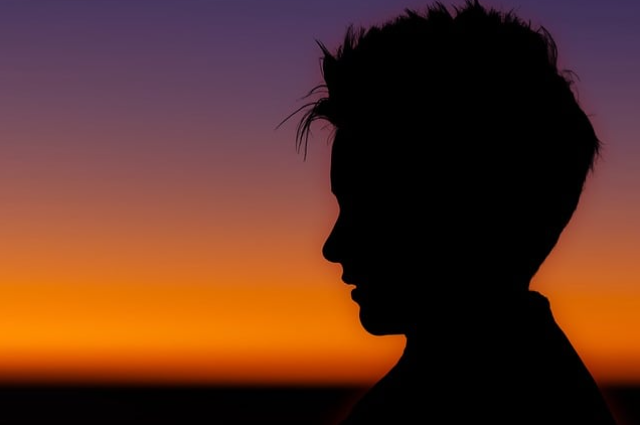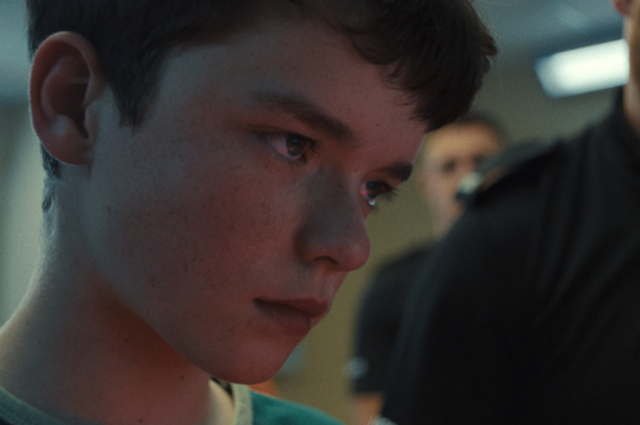
Netflix’s British crime drama 'Adolescence' (2025) has been making waves since its release on March 13, 2025. Created by Jack Thorne and Stephen Graham and directed by Philip Barantini, the show tells the story of Jamie Miller, a 13-year-old boy arrested for murdering his classmate, Katie Leonard.
But 'Adolescence' isn’t just about the crime—it’s about everything that led to it. Jamie’s life, his family, his school environment, and the online spaces he engaged with all played a role. The series explores the why behind his choices, showing how an ordinary boy’s life spirals into something tragic. It’s received a staggering 99% critic score on Rotten Tomatoes, and after watching it, I understand why.

When I started the series on March 27, I expected a gripping crime drama. What I didn’t expect was how deeply it would resonate with me. The incredible performance by the cast and the one-shot cinematography made every scene feel real, almost as if I were witnessing the events firsthand. But more than that, it struck a personal chord, reflecting the painful reality of lost potential and irreversible choices.
[Note: Rest assured, this review contains no spoilers—just an exploration of the themes that make 'Adolescence' so compelling.]
A Story That Hits Close to Home
'Adolescence' isn’t just about a murder. It’s about what happens after the ripple effects on Jamie’s family, the investigators, and the community. The show doesn’t follow a traditional whodunnit format. Instead, it forces us to ask: How does a 13-year-old end up here? What influences push kids into dark places?
The series opens with a jarring scene police storm into Jamie’s bedroom and arrest him. From there, we see his world fall apart, not just through his perspective but also through those around him. His parents are blindsided, struggling to understand how their son could be involved in such a horrific act.
Police Raid & Arrest of Jamie
Jamie starts as a regular kid with dreams and aspirations, but one wrong step changes everything. His story highlights the dangers of online subcultures—especially those promoting toxic masculinity and misogyny. The Wall Street Journal pointed out how the show has sparked discussions about teen male rage and the influence of internet communities on young minds. It’s a wake-up call for how easy it is for young people to fall into dark, destructive spaces online.
My Brush with Online Negativity
Watching 'Adolescence' hit me hard because I’ve been there. I’ve spent time in the toxic corners of the internet, particularly in incel (involuntary celibate) communities. I never subscribed to their beliefs, but I read, documented, and even engaged with their hateful content. I thought I was staying informed, perhaps even preparing to challenge these narratives. But in reality, I was drowning in negativity.
Before this, I was creative. I wrote stories, blogs, and poems. I read books and even tried learning new languages. But after years of exposure to online hate, I lost interest in everything. I didn’t even notice it happening. Slowly, my self-doubt grew. I became hyper-aware of how others saw me, always assuming they were judging me. It took watching 'Adolescence' to realize how much I had changed.
Art Imitating Life
Episode 2 of the series was a turning point. The investigators, DI Luke Bascombe and DS Misha Frank are tasked with piecing together the puzzle, but their efforts go beyond just solving a case—they’re trying to make sense of how a child could commit such an act.
In the episode, we get to witness all the other kids at Jamie’s school—how they speak, how they act, and how disturbed they are while pretending everything is normal. Jamie’s classmates whisper about him in hushed tones, some expressing disbelief, others revealing their prejudices.
DI Luke Bascombe made a chilling observation: no one was learning anything. Videos were playing in every class, but teachers were struggling to teach their students. The kids had surrendered to the toxic digital world.
That scene reflected my own experience. I had let online hate shape my thoughts. I spent time reading and saving screenshots of misogynistic comments from incel men, boys, and even women labeled as "pick-mes." The hate wasn’t just about gender—it extended to caste, class, race, and sexuality.
My mind was disturbed, though I didn't realize it. It made me insecure. I constantly found myself always thinking people around me were hating on me or talking behind my back. My childhood self-image issues flared up again, filling me with "what ifs." I let strangers, who don't even know me, define me without ever speaking to me directly. I wasted time doubting myself when I could have been writing, reading, doodling, or learning something new.
A haunting children’s choir version of "Fragile" by Sting played in the background of that episode:
“Perhaps this final act was meant
To clinch a lifetime's argument
That nothing comes from violence
And nothing ever could
For all those born
Beneath an angry star
Lest we forget how fragile we are
On and on
The rain will fall
Like tears from a star
On and on
The rain will say
How fragile we are
How fragile we are”
Hearing that song at that moment broke me. It made me see how fragile we’ve all become, and how easy it is to be consumed by negativity. If we continue down this path, we’ll become nothing more than puppets under the rule of toxic online incel culture; lifeless and disconnected.
A Call to Reclaim Creativity
'Adolescence' reminded me of something important: creativity is a way to heal. Many artists—Artemisia Gentileschi, Edvard Munch, Vincent van Gogh, Louise Bourgeois—channeled their pain into art. They didn’t let their suffering define them; they turned it into something meaningful.
That realization pushed me to pick up my old habits. I've started to reconnect with my passions. I'm writing again, not just to produce content, but to heal and rediscover myself. I dusted off books that have long gathered dust on my shelves and begun relearning languages I once loved.
It’s a slow process, but every small step helps me reclaim a part of myself. As DS Misha Frank put it in one scene of the second episode:
“All kids need is one thing that makes them feel okay about themselves...”
After all, I too am just a kid in an adult body!
A Message to Others
If you find yourself trapped in the negativity of online spaces, step back and reflect. It’s easy to get sucked into the vortex of online hate, especially when it feels like a means of staying informed or defending one's beliefs. You would think you’re staying informed or fighting back against harmful narratives. But at some point, exposure turns into immersion, and immersion starts eating away at who you are.
'Adolescence' is a stark reminder of where unchecked negativity can lead. It’s time we take back control. Write. Paint. Sing. Dance. Doodle. Do something that reminds you of who you are. We can’t let our futures be wasted by online hate.
And if you haven’t watched 'Adolescence' yet, I highly recommend it. It’s not just a crime drama—it’s a mirror reflecting the uncomfortable truths of our time. It’s like a disease spreading silently, making people believe it’s harmless just because it’s only hurting the so-called “bad” people. But it’s not. It’s harming all of us.
We can either look away or use it as a catalyst for change. Remember, no matter how far you’ve strayed from your passions, it’s never too late to return. Our futures are still unwritten, and we still hold the pen, the brush, the mic, the script, the melody, and the lens. Let’s use them!
